-
Get 10% off with code HELLO10OFF


I just woke up hot & sweaty. What’s going on?
They hit at the most inconvenient times: during business meetings, out with friends, in bed with your partner. Your face flushes. Your heart rate accelerates. Your body feels like a steam vent, and perspiration washes all over you.
You’re having hot flashes, and for more than 70 percent of women, they’re an ill-timed, uncomfortable, and often embarrassing reality of menopause.
Medically speaking, blood vessels near the surface of a woman’s skin dilate. This is the body’s attempt to cool off. The heart races to pump more blood to reach the surface of the skin where it is cooler, and that causes the red blush to the face and neck. A woman may sweat as that is another way the body tries to cool itself.
Some women can experience a rapid heart rate, lightheadedness, or even feel nauseated. Some experience chills. At night the same experience can occur and these are called night sweats. You can be cold one minute, and the next minute need all the bed covers off and feel quite miserable.
HOT FLASHES ARE CAUSED BY:
- Estrogen dominance (where estrogen levels are higher than progesterone)
- Insulin resistance
- Stress
- Weight gain
- Certain foods: spicy foods, caffeine, and sugar are common culprits
Women who smoke, are overweight, have thyroid disorder, autoimmune disease, or diabetes are at higher risk of experiencing hot flashes during menopause. African American women also report hot flashes more often than women of other ethnic backgrounds.
What can I do about it?
Managing hot flashes during menopause is possible. You don’t have to live feeling like this forever. Your doctor may prescribe medication to help with hot flashes, including anti-depressants, high blood pressure meds, or anti-seizure drugs. These tend to have varying degrees of efficacy.
For many women, hot flashes are most effectively managed with diet and lifestyle changes that promote hormone balance and insulin sensitivity.
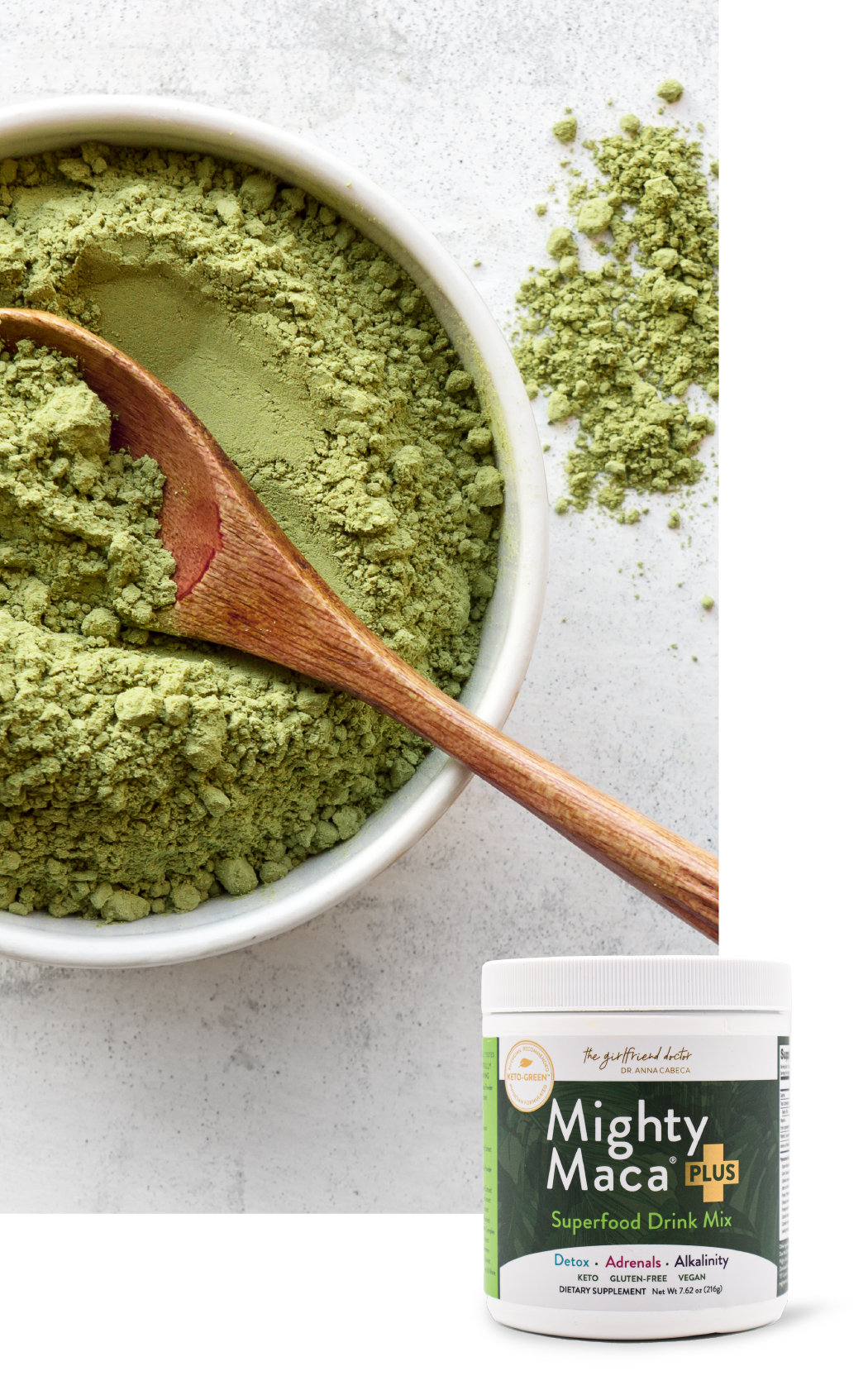
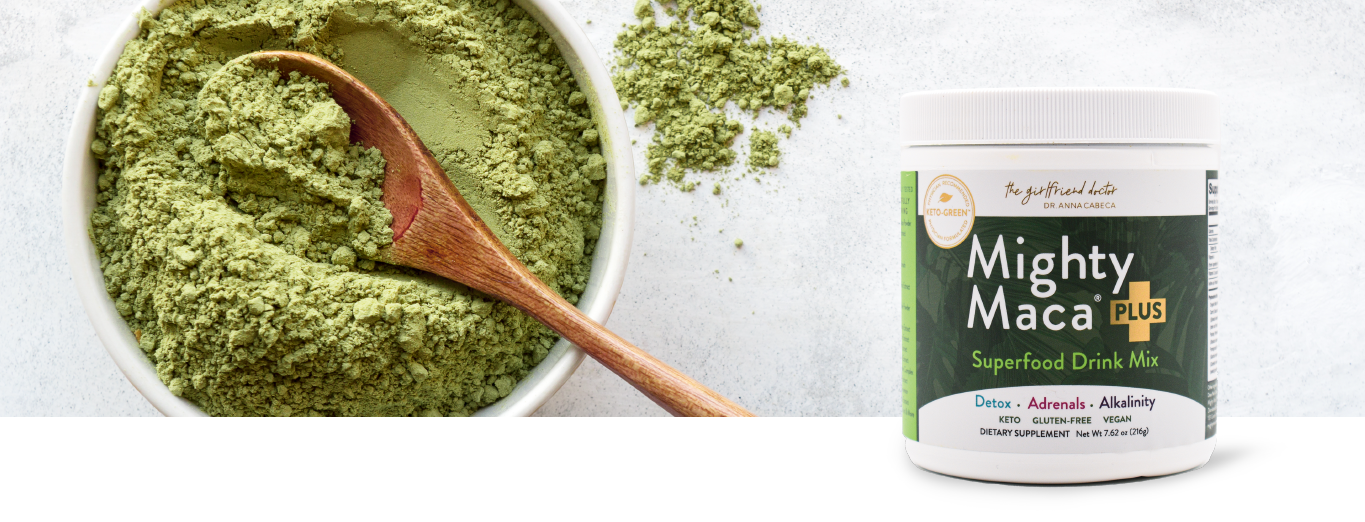
Mighty Maca® Plus
Calms and supports your adrenals so they can help your body produce more hot flash-fighting hormones with a powerful blend of nutrient-rich superfoods.
FEATURED INGREDIENTS:


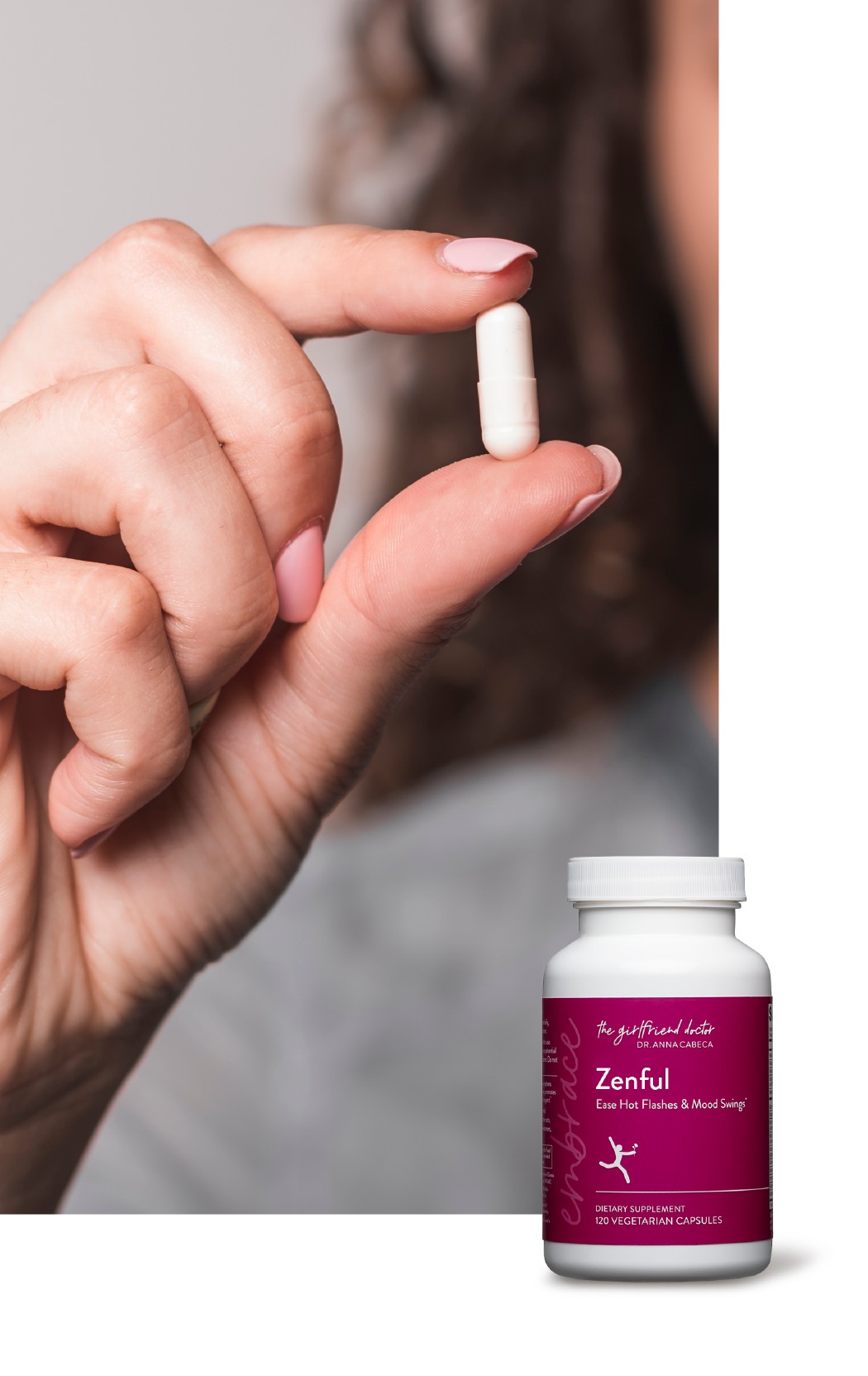
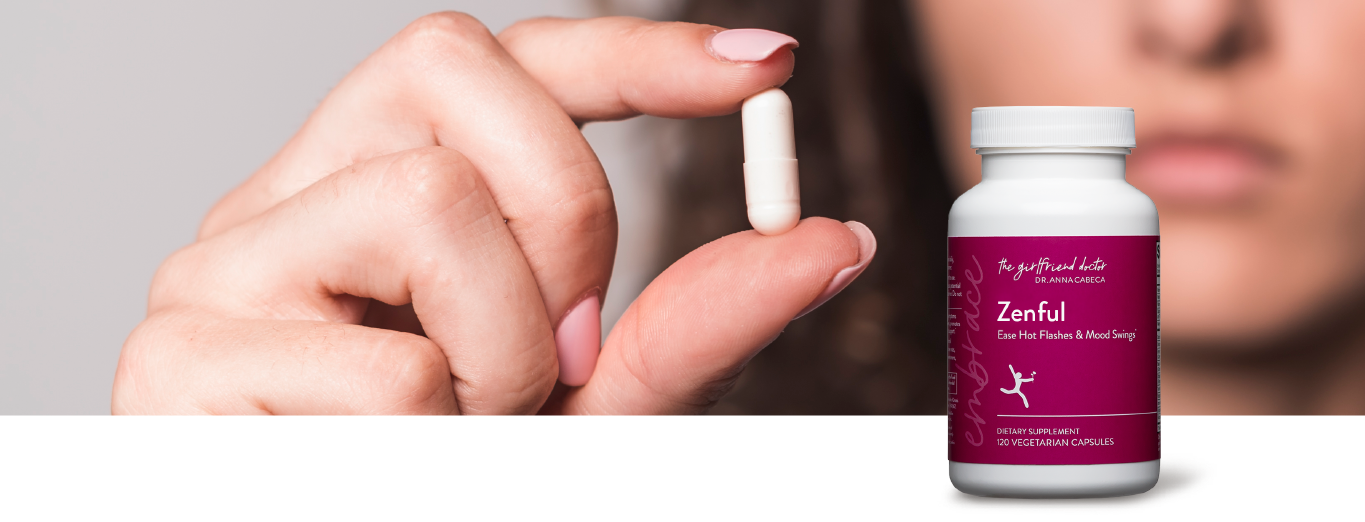
Zenful
The ideal hot flash fighting formula. With herbs that help promote progesterone production, deliver adrenal support, and flush out excess estrogen — this one’s a hot flash hero.
- Supports Balance of the Female Hormone Cycle
- May Ease Common Symptoms Associated with PMS and Menopause
- Promotes Estrogen Detoxification
- Provides Antioxidant Activity and Cellular Support
- Menopause Supplement
Other Things To Pay Attention To
When it comes to hot flashes, hormone balance, and insulin sensitivity are key.
Here’s how to unlock both:
-


-
KETOGENIC DIET
Insulin resistance is a key driver of hot flashes. A clean ketogenic diet that includes plenty of alkalinizing vegetables can help your body become more insulin-sensitive and cool off those hot flashes.
Try this simple meal plan and see how quickly you feel better!
-


-
INTERMITTENT FASTING
Try giving your body at least 12 hours without eating each day. It’s not as hard as it sounds, either. If you eat dinner before 7 PM and eat breakfast at 9 AM, you’re doing great.
-
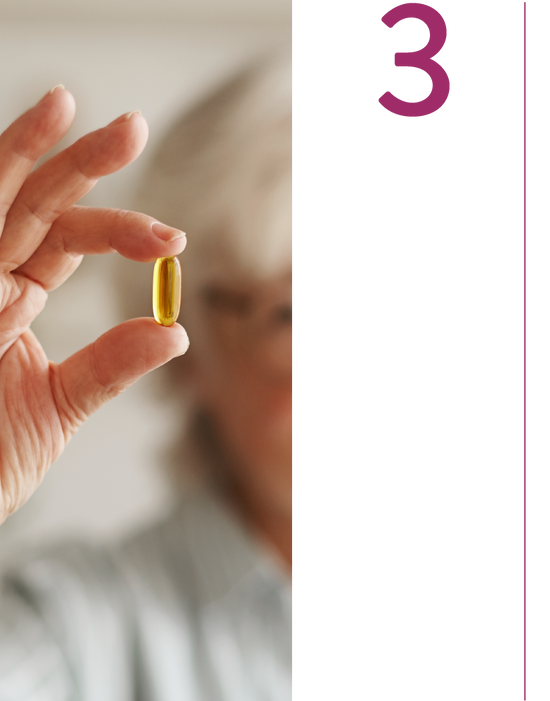
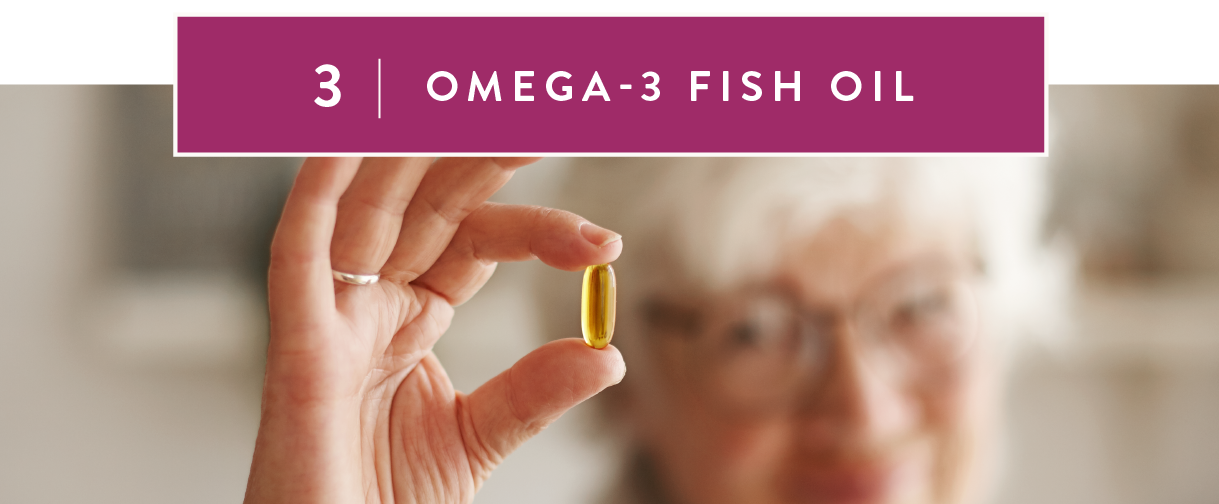
-
OMEGA-3 FISH OIL
Omega 3s are excellent for supporting healthy levels of inflammation in the body, which in turn helps keep hot flashes at bay. A good omega-3 supplement will contain 360 milligrams EPA and 240 milligrams DHA per 1,000-milligram capsule, but you can also get fish oil from eating yummy foods like these salmon cakes.
Listen to your body
Hot flashes are your body’s way of communicating to you that something is wrong. Hot flashes have been linked to an increased risk of cardiovascular events, such as heart attack, stroke, and heart failure. Hot flashes are also linked to brain health as well — so they are message from your body that you can’t ignore.







